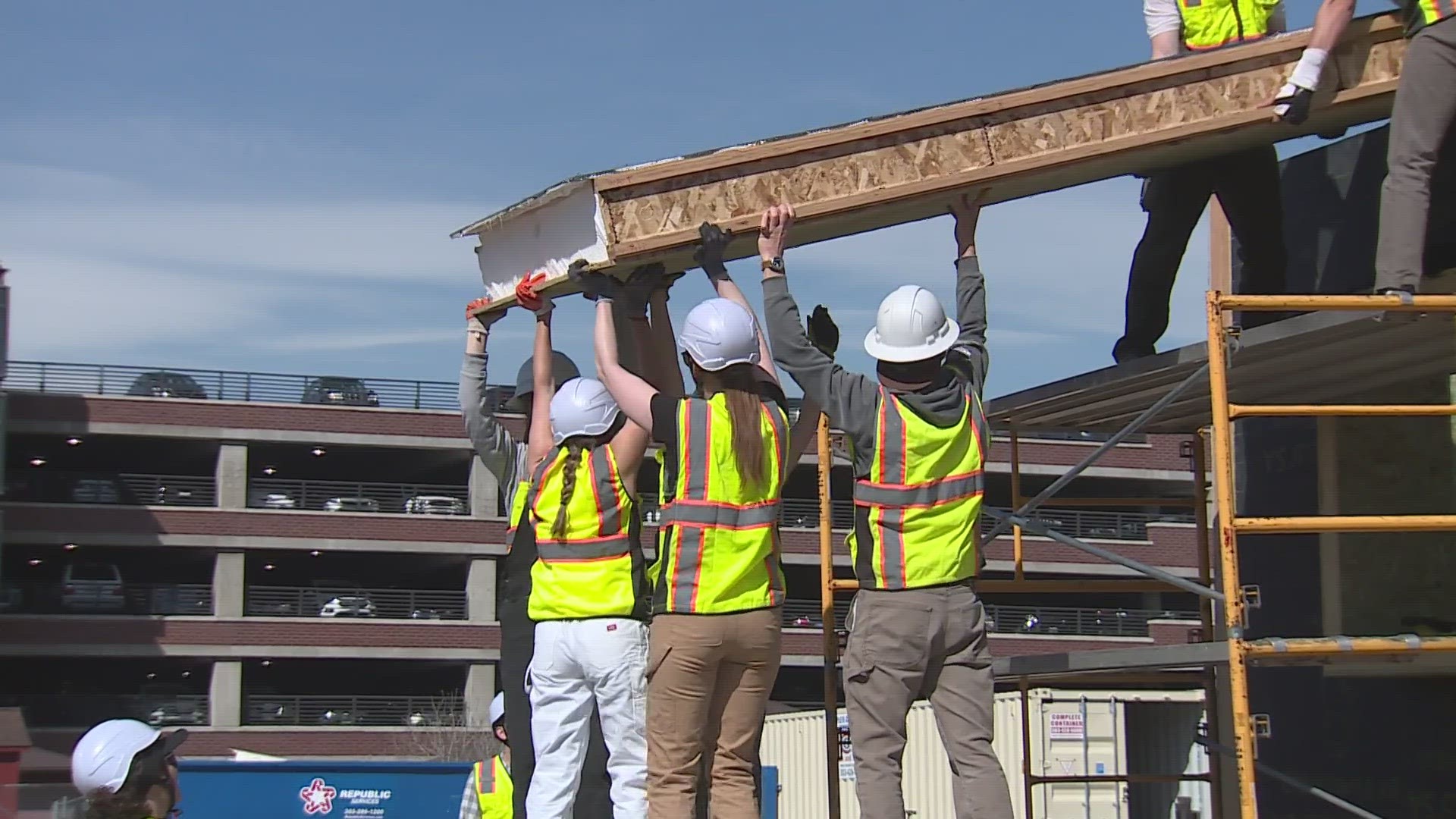DENVER — At the corner of 11th and Walnut Streets in downtown Denver, you'll find a small construction project that will soon have a big impact nearly 8,000 miles away.
Students with CU Denver's design build program are building eco-friendly structures using 75 to 85% recycled materials. Once they're complete they will be shipped to researchers studying climate in a nearly inaccessible area of Antarctica.
"They're living completely off the grid, so we had to be really cognizant of the building envelope, what encloses it, and how to make it as energy efficient as possible," program director Rick Sommerfield said.
The first two structures were shipped there in December. The new buildings are replacing the old not-so-earth-friendly research facility that NOAA scientists have worked in for years.
George Waters is one of them. He was in Denver helping build the new structures.
"It's about 30 years old, and it's become pretty much uninhabitable," he explained.
Of course, getting the structures to the remote area on Livingston Island will not be easy. Once totally built, the buildings will be taken apart, put in shipping containers, and sent on a multi-stop trek to Antarctica
"Then from Antarctica, we actually offload it onto the Zodiacs where it goes piece by piece to the shore, onto ATVS ... up to the job site," Waters said.
It is no doubt a major job. But it will greatly help climate scientists do theirs.
"It makes it a place where my scientists, my team of scientists, can do good research right?" said Waters. "It's a pretty gnarly environment there."
The project will not only allow scientists to keep those close tabs on our ever-changing planet, but it also gives students a chance to build for their own future.
The general public will be able to see the project, from start to end, on the big screen.
The state of Colorado's Office of Film will be following the entire process for a documentary it is putting together. The film should be released in the spring of 2024.
SUGGESTED VIDEOS: Feature stories

